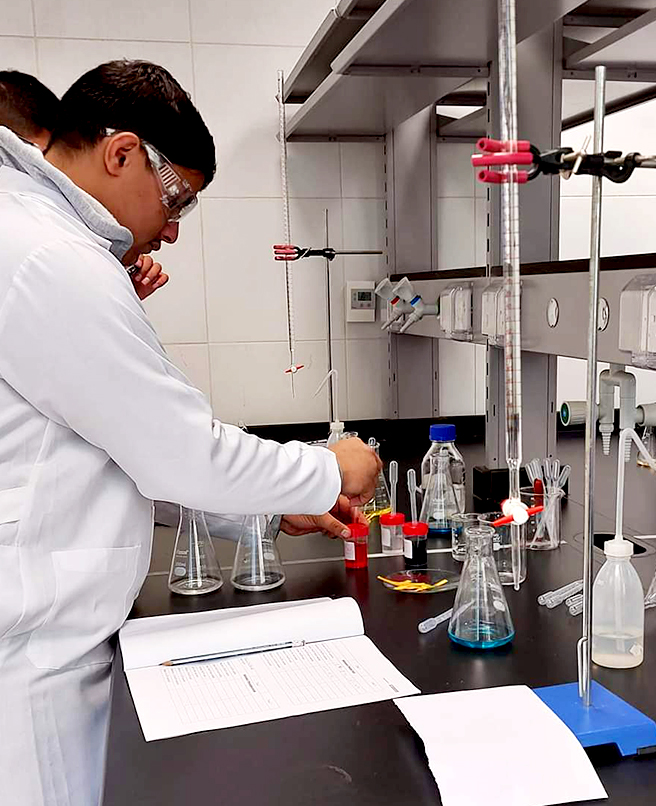Vision:
The Pharmaceutical-chemical Engineering program at GJU is an integration of fields that is unique in Jordan and the Middle East. Students will be exposed to basic and advanced courses that blend topics of chemistry, biochemistry, pharmacology and engineering. Students are expected to participate in cutting-edge research and training from faculty and industry sources specializing in the different disciplines. Prospective engineers will be equipped with the knowledge to transform raw materials into useful pharmaceutical and fine chemical products with commercial interest through systematic use of engineering concepts and methods. Graduates will be able to drive the development, components processing, and commercialization aspects of research and development within the pharmaceutical industry.
The pharmaceutical industry in Jordan is among the most developed and rapidly growing sectors of the economy. Therefore, Chemical-Pharmaceutical Engineering comes about in anticipation of providing the chemical and pharmaceutical industry in Jordan with the much needed human resources who are well versed on state-of-the-art technologies in their fields of acquired expertise. Integrating different disciplines of Engineering and sciences for targeted education with special focus on practical training constitutes the main skeleton of the department. This strategy will positively reflect upon the quality of experienced workforce in Jordanian and regional markets. On the other hand, the department is concerned in transferring technology and quality research to the Jordanian industry through diverse national and international collaboration.
Outcomes:
- Chemical-pharmaceutical engineers apply the principles of chemistry, physics, mathematics, and engineering to improve production efficiency, product safety, and to develop processes related to the pharmaceutical industry.
- They will use their knowledge to enhance the practice of medicine, pharmaceuticals manufacturing, or any related industry where chemicals and their reactions can have an impact on a product or procedure related to the medical industry.
- For example, chemical-pharmaceutical engineers can work with medical personnel in designing delivery systems for medicines in order to ensure that patients receive the correct dosages for proper treatment, or focus on increasing the production of small-scale drug formulation processes in order to effectively and economically improve delivery of medicinal agents.
- Given the global labor shortage of qualified personnel in this field, graduates will command lucrative salaries with national and international career opportunities.


